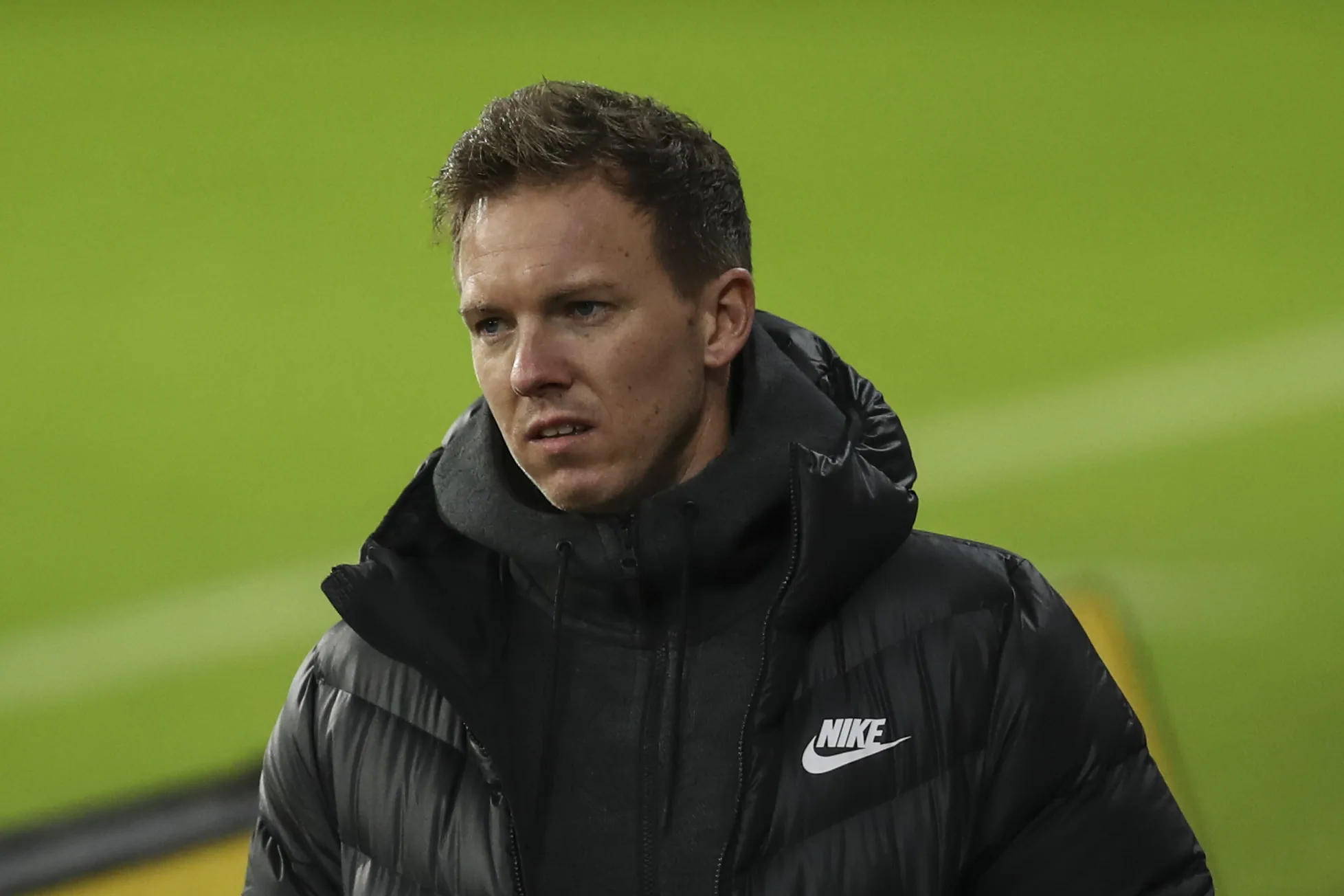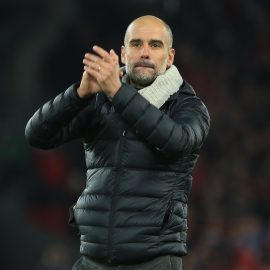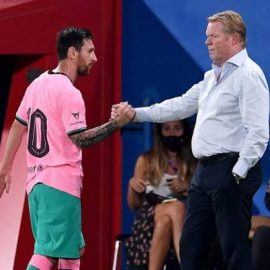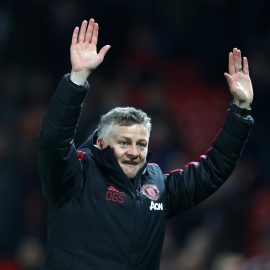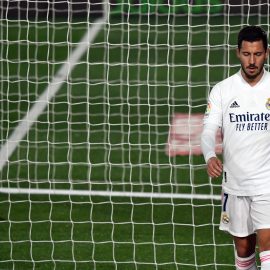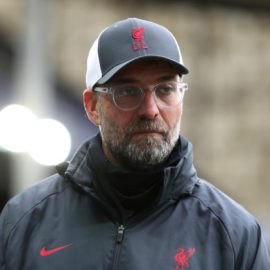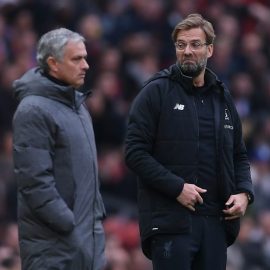In the first of his series on young English managers in the Football League, Hugo Steckelmacher seeks to demonstrate that Dave Penney is indeed worth top dollar.
“One of my co-workers said that cricket lovers were naturally anally retentive. I told him to shut up and to never use my tea mug for coffee again.” (Dave Penney)
Dave Penney, born in Wakefield, Yorkshire, on the 17th of August 1964 (age 43), had a fine playing career before eventually trying his hand at management. After toiling as a bricklayer for five years — a background shared, Penney almost proudly points out in an interview with the FA, with former Arsenal striker-cum-BBC-pundit Ian Wright — Penney was spotted playing for local joint Pontefract Collieries, and promptly signed for Derby at the ripe old age of 21.
After four fairly disappointing years with the Rams, in which he made just 19 appearances, Penney moved on to Oxford United, for whom he was an ever-present in the heart of midfield as the club climbed from the old Third Division to the First (a feat he would later attempt to re-enact, or even better, as a manager with Doncaster). Penney then transferred to Swansea City, where he enjoyed a large degree of success, especially endearing himself to the fans, before leaving in 1997 to form part of a Cardiff City side then reeling from their worst ever finish in league history: 22nd in Division Three, only narrowly avoiding relegation. Penney made 35 appearances, scoring 5 goals, as the rejuvenated Bluebirds waltzed to 7th in the table, and the play-offs, although they subsequently fell at the first hurdle, losing in the semi-finals.
At the end of 1997-8 season, Penney made the decision to head north once more, pitching up in South Yorkshire — specifically, at the Belle Vue stadium in Doncaster, birthplace of the great Kevin Keegan, with whom he would have a close relationship as a manager. Rovers when Penney joined them were somewhat in disarray, having been relegated the previous season with the highest ever total of league defeats (a whopping 34). Soon after the club’s relegation, chairman Ken Richardson was sent to the nick for insurance fraud, having attempted to set fire to Belle Vue, hoping to use the insurance funds to repay the club’s debts.
It is in the context of this turmoil that Penney began to etch his name into Doncaster Rovers history, scoring the only goal in The Vikings’ “giant-killing” victory over Southend in the FA Cup at a time when Rovers found themselves languishing at the very bottom of the Conference table. Spurred largely by the optimism bred by this cup run, Doncaster went on to avoid relegation with relative comfort and proceeded to triumph in the Conference Cup, a trophy they would retain the following season.
Having begun to combine coaching with his duties as a player in early 2001, December of the same year saw Penney took over from Steve Wignall, originally as caretaker manager, following Wignall’s dismissal.
Rovers at this point were in dire straits. Perched comfortably but disappointingly in mid-table, and suffering from TV revenue withdrawal symptoms, the club was hit by a financial crisis, a crisis duly exacerbated by the early-season £100,000 signing of prolific Rushden & Diamonds striker Justin Jackson, who never really hit form at the right time. Forced to get rid of not only manager Wignall (who was seen to be underperforming, anyhow), but also chief executive Joe Hoggins, as well as three important members of the squad in the shape of Barry Richardson, Paul Carden and Barry Miller, the club turned to Penney as a temporary solution to a major problem.
Having won four of six games as emergency coach, Penney was handed the reins on a permanent basis. Some shrewd signings, including those of defensive linchpin Mark Albrighton (on a free transfer from Telford United) and Steve Foster on a free from Bristol Rovers, and midfielders Richard (Ricky) Ravenhill (a Doncaster native) and John Doolan, led to an upturn in form, and Doncaster rose to a 4th—placed finish in the Conference table, a good showing, although not enough to achieve promotion.
Promotion was gained, however, in the 2002-3 season, the club finishing the season in 3rd position and progressing to Division Three via the playoffs (Chester were beaten in the finals, on penalties). Although Rovers had not set the Conference alight the previous season, in contrast to Yeovil, who had run away with the division, Penney worked his team hard over the summer, by and large keeping faith with the squad he had taken up with him to Division Three, a squad which included striking hot-shot Gregg Blundell, top marksman in the Conference for two consecutive seasons, for whom the club had paid some £25,000.
Few, and perhaps not even Penney, suspected what was to come next. Backed by ambitious chairman John Ryan, and armed with an eagle eye in the transfer market, Penney dipped into his transfer chest to make a series of astute signings.
Penney’s skills of suasion tempted Michael McIndoe, player of the season at Conference champions Yeovil Town, to join Rovers’ cause, a move which provoked bemusement and mockery amongst Yeovil fans who had expected McIndoe to move up at least one division — little did they know that he was to do so within no time with Doncaster. McIndoe was joined at Belle Vue by giant striker Leo Fortune-West (about whom raving Cardiff fans had chanted “Leo is Brazilian”) and New Zealand international full-back Dave Mulligan, whose experience at a higher level (he had played 63 games for neighbours Barnsley prior to joining Doncaster) would prove invaluable. Later, Penney would pull off a veritable coup by signing Sunderland starlet Chris Brown on loan, and the in-demand 18-year old formed a formidable partnership with Blundell (10 goals and 18 goals respectively) to fire Doncaster to the 3rd Division title: the Vikings finishing 4 points ahead of Hull in second place.
With John Ryan continuing to support Penney financially, the chairman’s hopes were high that Doncaster could be promoted to the Championship within the next couple of seasons. The 2004-5 season, the club’s first back in the 2nd Division (League 1), went reasonably well: Rovers had positioned themselves well for a play-off place, particularly after a resounding 4-0 victory over Yorkshire neighbours Barnsley, although any chances of promotion surge were checked by a late downturn in form which saw the club finish an agonising 5 points off the play-off places in 10th position, Donny’s highest league finish for some 50 years.
The 2005-6 season, however, had been earmarked as Rovers’ opportunity to achieve a third promotion in four seasons, with the £125,000 capture of former Notts County striker Paul Hefferman a symbol of the club’s ambition. This was not to be, and it was the club’s run in the Carling Cup, amidst everything, that both papered over the cracks in an unstable structure, and planted the seeds of expectation that would eventually bloom into full-grown creepers of discontent on the part of chairman Ryan.
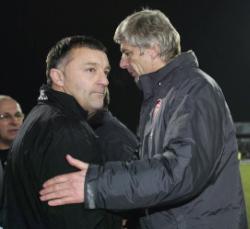
The summer of 2006 saw Penney stick with Doncaster, despite the numerous rumours surrounding his future, and the suggestions of disharmony in the Doncaster dressing room — Penney having come in for considerable stick from former captain Steve Foster, who had been released in January 2006 following a bust-up in a training camp in Cyprus and snapped up by the team that would eventually run away with the League One title in 2007, Scunthorpe United. In spite of all of these problems, Penney was voted League One coach of the year at the 2006 BBC Awards.
What’s more, main shareholder Ryan again loosened his purse, with big-names such as Bruce Dyer and former Manchester City captain Kevin Horlock touted as the men who would help fire Rovers to the promised land of the Championship. Unfortunately, both players would miss the start of the season through injury (indeed, the duo have since been released by the club following a spate of injuries) and this misfortune, combined with Heffernan’s initial poor form (he is now one of Donny’s prized jewels), led to increased pressure on Penney’s job. Finally, after a poor run that saw the club win just one of its five opening league matches, the Penney dropped, with probably the club’s most successful ever manager departing Belle Vue on the 28th of August 2006, a sad ending for a man who had once again put the Rovers on the footballing map.
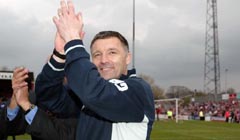
When Penney left the club, Ryan would go on to suggest that Penney’s focus had wavered due to frustration at being bypassed in the job market by such managers as Phil Parkinson and Paul Simpson, who had moved on from Colchester to Hull and Carlisle to Preston respectively.
“I think Dave was disappointed when a bigger club didn’t come in for him in the summer. He saw Paul Simpson go from Carlisle to Preston and Phil Parkinson from Colchester to Hull. Dave has a better CV than the pair of them.”
Penney, however, is in no way a snivelling Iago, and he came out to quash this speculation immediately, stating that he did not believe he had “taken Doncaster as far as he could” (an oft-used phrase to explain managerial departures), although he typically avoided a direct attack on Ryan. Ryan’s attitude is ironically encompassed, however, in a comment taken from a recent BBC interview with Richard O’ Kelly, who is current manager Sean O’ Driscoll’s assistant at Doncaster:
“The chairman is very ambitious and can get a bit carried away at times […] He wants us to win the Champions League next year but I have told him we have to get into the Premier League first.”
Whilst many managers would have sat around sulking, Penney took a couple of months out to “do bits and bobs around the house”, before signing for Darlington at the end of October 2006. As when he had taken the reins at Doncaster, the Quakers were in the midst of a mini-crisis: former manager David Hodgson had been accused of financial corruption, and managerless Darlo had endured a mediocre month of football, the low point of which came in the 5-0 home defeat by Rochdale.
A 1-0 home victory of Chester signalled a positive start to Penney’s time at the club. Not all of Penney’s initial workings glittered with gold, however: the club had a distinctively “copper” patch soon into his reign, suffering eight consecutive defeats in all competitions through December to January. However, chairman John Hughton stuck with his man, and some excellent business in the transfer market, including a loan move for Middlesbrough starlet David Wheater and the resigning of defender David Valentine, soon returned Darlo to winning ways. The dreadful run was brought to a categorical end with a win over Peterborough in mid-January, courtesy of a Julian Joachim double. The club then embarked on a 12-match unbeaten streak (ended by runaway champions Hartlepool), before a rollercoaster end to the season (including a loss at Barnet, a win at Notts County, and a 5-0 home thumping at the hands of Stockport County saw the club finish just outside the play-off positions.
Penney continued to strengthen over the summer of 2007, notably signing many players whom he had worked with with Doncaster, along with £100,000 star Pawel Abbott, and was rewarded for his efforts by the club’s form. Darlo went unbeaten for the first month of the season, with the six consecutive wins in just over a month in charge seeing Dave Penney lead the Second Quarter of the LMA Performance League. Despite losing their unbeaten record to Paul Ince’s MK Dons in mid-september, Darlo’s form has not dropped, and they currently find themselves in 2nd position in the table, 8 points behind the Dons, with two games in hand. A record, overall, that suggests to me that it’s not a matter of a penny to a dozen: for Darlington, it’s a case of a Penney in a million.
Penney has recently signed an extension to his contract at Darlington, binding him to the club until 2011. He has confirmed his desire to match his chairman’s ambitions, to provide stability to a club rocked by insecurity in recent years, and to develop the club’s youth policy. Given his previous record, few would bet against him doing so in the near future.
Style of Play
A great lover of attractive football (when asked whilst at Doncaster whether their style of football would impede them from succeeding, Gregg Blundell replied categorically: “No, you CAN play football to get promotion from this division“), Penney’s football at Doncaster was characterized by its simplicity.
Penney routinely sent out the team in a 4-4-2 formation, played with two traditional English wingers who attacked relentlessly, and preferred passing midfielders who would play the ball through to his two forwards, normally a “little-one big-one” combination (Fortune-West was a notable “biggun”). However, Penney never neglected the defensive side and has brought in some excellent centre halves during his time at the two clubs: indeed, Darlington currently have the best defensive record in League Two, having conceded just 19 goals in 28 matches.
In Penney’s own words, taken from two interviews conducted some five years apart:
“I’ve been a manager at Doncaster for a year and a half and every time I’ve sent the boys out it’s been a 4:4:2,” he said.
“I find that if in your coaching you bring in new ideas you can possibly lose your initial game-plan – it can bring in doubts to the players’ minds. If you are going to change systems you’ve got to do it pre-season.
“Very rarely we’ll change: last season when we were winning one or two nil I put on an extra central defender a couple of times to make it solid for the last ten minutes, but other than that I’ve stuck to 4:4:2. With that your wide men have to be ever so fit, especially in this division.”
“We try to play with 4-4-2 get plenty of width and get the ball wide. There were two wide men here who hadn’t been playing because they played a different formation and they are enjoying themselves coming back into the team and are nice and fresh and sharp.” (recent interview with LMA)
Transfers
Whilst a lot is made of the money Penney was afforded during his last couple of seasons with Doncaster, and now the backing he has received at Darlington, few have focussed on Penney’s excellent qualities as a wheeler-and-dealer. The list of Penney’s transfer successes is virtually endless — so far there have been tfour transfer windows since Penney was appointed Darlington manager, during which time they have bought, sold or loaned over 50 players — but I would choose to point out the free signings of defenders Steve Foster and Mark Albrighton, first at Doncaster, and now at Darlington. What’s more, commentators unfairly fail to note the fact that Penney has made money for every club at which he is worked, increasing both Doncaster and Darlington’s average attendances, augmenting TV revenue at Doncaster through the League Cup run, and shopping astutely — even Gregg Blundell, for whom Penney apparently “overpaid”, was sold to Chester City for a club record fee that was reported to be in the region £105,00, some £80,000 more than the Vikings had originally paid for the striker.
Management Style
Not the most sophisticated of tacticians, Penney is a “hands-on” type and a superb man-manager who could be compared to the likes of José Mourinho in that he commands an extraordinary amount of loyalty and respect from his players. However, it is worth noting that, unlike Mourinho, Penney is almost universally liked in the world of football, and can call the likes of Kevin Keegan, Steve McClaren (who was reputed to have considered Penney as a candidate for the England U-21 job — a role in which I feel he would have succeeded) and Chris Kamara his friends.
Indeed, in spite of the rumours that he had lost the dressing room at Doncaster, Penney time at Darlington has seen him reunited with a number of his former charges: including Steve Foster (whom has once more been made club captain by Penney), Ricky Ravenhill, Tim Ryan and Gregg Blundell.
Achievements
League Titles
Doncaster Rovers: Nationwide Football League Division Three Champions (2003-04)
Domestic Cups
Nationwide Conference Cup (1998-9, 1999-2000)
Personal Awards
Doncaster Rovers: BBC Coach of the Year, Coca-Cola Football League One (2006)
Doncaster Rovers: Manager of the Month, Coca-Cola Football League One, (November 2005)
Doncaster Rovers: Manager of the Month, Coca-Cola Football League Two, (April 2004)
Doncaster Rovers: Manager of the Month, Coca-Cola Football League Two, (October 2003)
Managerial statistics (from Soccerbase)
| Team | From | To | Games | Won | Lost | Drawn |
| Darlington | 30-10-2006 | Present | 67 | 30 | 20 | 17 |
| Doncaster | 27-12-2001 | 30-08-2006 | 241 | 114 | 65 | 62 |
| Doncaster | 22-04-2000 | 31-05-2000 | 6 | 4 | 1 | 1 |
Penney For Your Thoughts — Future Plans
Penney’s excellent record at club level, his extraordinary motivational skills and his talent in the transfer market, along with his ability to work with young players (his own relatively unadvanced age permits him to relate effectively with up-and-comers), suggest that Penney is destined for greater things.
As Chris Kamara states in an article published on the 28th November 2007 (“Ollie’s gamble“):
“He’s a talented manager and could have even been in the frame for the Derby job if he’d stayed there. But getting the sack at Doncaster meant he had to take a step back to move forward again. […] I think David will be a Premier League manager one day […] He’s very sensible, he knows his tactics and his performances in the Carling Cup with Doncaster when he plotted the downfall of a lot of big teams was superb.”
Also See:
Add Sportslens to your Google News Feed!
